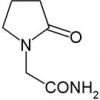Hello to everybody. I am a newbie here looking for advice. I am glad to see here people with some scientific background, who are really methodical (as opposed to some arrogant neurologist: "ahh, you are anxious, take this klonopin and do not argue with me if you want to heal") and have been researching into the matter of neuroscience. I have read the posts of ScienceGuy and I am simply amazed at his background knowledge, so I was hoping for some help.
I was on benzodiazepines for a short term, nevertheless I got into this mess. And when you are into benzo withdrawal, it does not matter long term of short term. It is a very individual thing in the end. The whole thing was so unnecessary, but lack of knowledge about those evil drugs, my own stupidity, and doctor's greed have put me into this situation.
At present, 14+ months off xanax and clonazepam, I am struggling with cognitive issues mainly.
Short term memory is literally non-existent, I can not focus, suffer from lack of creativity, abstract thinking and problem-solving skills, I have no motivation, small tasks represent a huge challenge. Everything I listed here comes with a king of mental fatigue and tension, which is difficult to explain. It is like some kind of brain fog, I feel like a retard (and I am a computer programmer).
Physically I am doing ok overall, maybe at 99%. I get tired more easily, have some musle weakness especially in the early mornings (high cortisol maybe ?), and blurred vision. Those symptoms are not that much of a trouble really, being of low intensity. But they are a very typical sign that my nervous system is still out of whack.
Sleep is still disturbed. It is not a full-blown insomnia, since mostly I have no troubles falling asleep (happens maybe only 1-2 times a month), but the issue is rather sleep maintainance. I am taking Trazodone (an older generation anti-depressant with some sedative properties) and it helps in this regard, reducing the number of awakenings and helping to fall asleep after an awakening. I chose that type of sleep remedy, since it does not work on GABA-receptors (at least directly) and is considered non-addictive (haven't noticed any tolerance build-up, I went from 100 mg in early withdrawal, through 50 mg, and to 25 mg as of now) and safe at the low doses it is prescribed for sleep.
As a summary: at 14 months off into benzodiazepine withdrawal, I am not doing too bad overall (basic day-life is ok), but the persisting cognitive issues are debilitating. So I am no longer looking for a temporary symptoms relief, flooding the damaged GABA-receptors with more agonists (be those "natural" or "weak") or increasing synaptic levels of GABA. I am looking for a long-term solution out of this chronic state, even if it does mean a certain discomfort at short-term.
I have been thinking about antagonizing my GABA-receptors. I have read everything about flumazenil, but unfortunately it has a very short half-life thus it is not very practical for this purpose. Still I consider to do just a single "test" to validate a theory of mine. Of course it would be performed very carefully and under supervision of a medical person.
At 11 months out I tried something. Wormwood is known to have some antagonistic properties. I started drinking wormwood tea regullarly. I started to notice some improvements in my overall condition, but I tend to attribute those to the stage of post-BZD recovery (many are reporting turning a corner between months 11 and 15). But still, the fact it did not make me worse at least, gives some food for though. It is not as simple as: "by blocking your damaged receptors with an antagonist, you would excite your CNS further, and thus feel even worse". Well, I didn't. Of course, one could argue that wormwood is a very weak antagonist, and you just wouldn't even notice it.
I have a theory what has happenned in my case. It is not just that agonizing GABA-receptors with benzodiazepines has led them to loose their original affinity / led to a decrease of their density. I believe, in attempt to achieve homeostasis, my nervous system has gone even further by making conformational changes in the receptors' expression, switching them from agonist to an inverse agonist conformation. In other words they no longer "accept" the agonistic (calming or anxiolytic) body ligand, but the opposite inverse agonistic (anxiogenic) ligand. So the body is somewhat "fooled" and that's why I am experiencing those secondary long-lasting symptoms with cognitive impairment: since it cannot achieve overall homeostasis with the help of the GABA / Glutamate cycle, it performs a cascade of downstream adaptations (downregulation) on other neurotransmitters: Dopamine, Norepinephrine, Serotonine and Acetylcholine (I believe in particular the last one is responsible for the normal intellectual activity). Those neurotrasmitters are responsible for a normal mental state. Of course the reason for the cog/brain fog should be looked for outside the GABA/Glutamate cycle. The point is, one can argue that while Glutamate is the main excitatory neurotransmitter in the CNS, those other neurotransmitters posess some excitatory function as well, at a certain - surely smaller - extend.
Could someone shed some light onto that particular issue please ?
Of course it is a layman's theory, but it would explain a lot. There have been trials with flumazenil on patients in protracted withdrawal (no, not those barbaric rapid detoxes, I want to stress that). While results vary of course, in the majority of cases they are reporting a relief of symptoms (including even cognition !) to a different extend. That would perfectly match the assumption about the conformational changes of receptors - flumazenil is symply blocking that inverse agonist. I want to stress that I do not regard flumazenil as some kind of a "miracle" cure reversing receptor damage, just that it brings some plausible explanation of what really does go on there and about possible solutions. Off course, reversal of receptor tolerance is a very slow process (neurogenesis) with protein synthesis, regrowth of neural pathways, reversal of gene expression and receptor externalisation. But it appears there is more than that, with the receptors being locked into an abnormal state and CNS being "fooled". There are reports that flumazenil may even work long-term into full reversal of GABA-receptor changes, by following a certain protocol. They put you on a subcutaneous IV-infusion (trying to extend it's effect since it has a short half-lfe) over a couple of weeks. The results are promissing, but it seems so far nobody has been willing to perform more extensive research.
And here comes my other question: what is the argumentation that antagonizing GABA-receptors will help them restore their original affinity over time ? My benzo brain is missing the train of thought
Thanks in advance.



























































